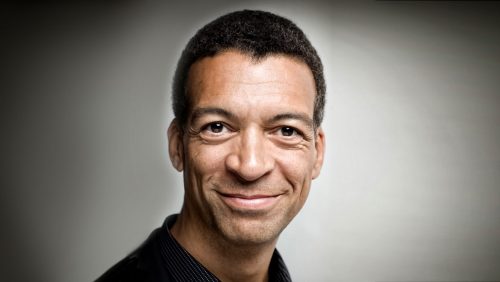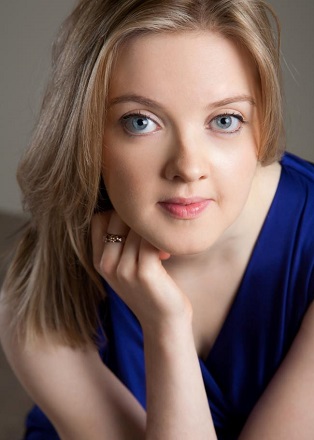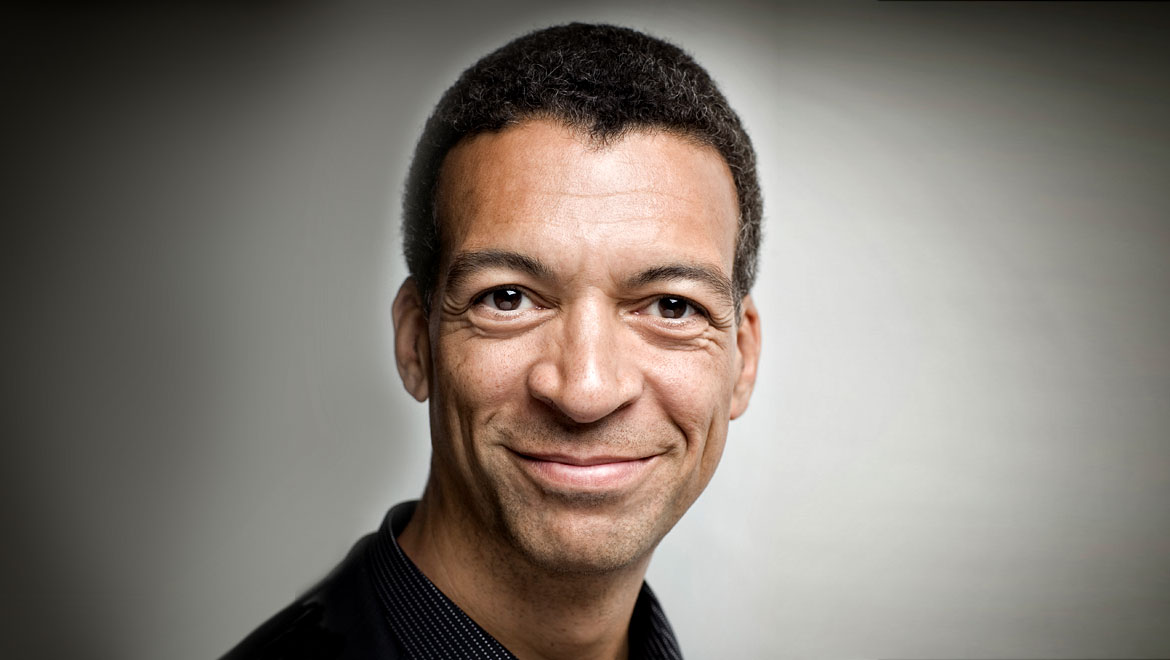
 United Kingdom Oxford Lieder Festival [5] – A Thomas Hardy Songbook: Rowan Pierce (soprano), Roderick Williams (baritone), Christopher Glynn (piano). Holywell Music Room, Oxford (live stream), 16.10.2020. (CS)
United Kingdom Oxford Lieder Festival [5] – A Thomas Hardy Songbook: Rowan Pierce (soprano), Roderick Williams (baritone), Christopher Glynn (piano). Holywell Music Room, Oxford (live stream), 16.10.2020. (CS)

Schubert – ‘Die Blumensprache’ D519, ‘Am Bach im Frühling’, ‘Ganymed’ D544, ‘Im Abendrot’ D799
Britten – ‘At day-close in November’ Op.52 No.1 (from Winter Words)
Holst – ‘In a Wood’ Op.15 (from Six Songs)
Ireland – ‘Summer Schemes’
Britten – ‘Midnight on the Great Western’ Op.52 No.2 (from Winter Words)
Ireland – ‘Great Things’
Britten – ‘Proud Songsters’ Op. 52 No.6 (from Winter Words)
Weir – ‘Written on Terrestrial Things’
Bax – ‘The Market Girl’
Venables – ‘A Kiss’ Op.15
Britten – ‘At the railway station, Upway’ Op.53 No.7 (from Winter Words)
Burton – ‘When I set out for Lyonnesse’
Vaughan Williams – ‘Buonaparty’
Gurney – ‘The Night of Trafalgar’
Wood – ‘An Ancient to Ancients’
Britten – ‘Before life and after’ Op.52 No.8 (from Winter Words)
Finzi – Before and After Summer Op.16
One of my happiest musical memories from what seems now a distant summer was the recital recorded by soprano Rowan Pierce and pianist Christopher Glynn in All Saints Church in Helmsley as part of the 2020 Ryedale Festival, of which Glynn is Artistic Director. So, what a pleasure to hear Pierce in the ‘Emerging Artist’ spot at Oxford Lieder, prefacing Roderick Williams’ recital with Glynn.
If the summer past seems distant then spring ahead feels almost a future fantasy, but Pierce brought budding flowers into the present with Schubert’s ‘Die Blumensprache’, the bubbling floral conversations about life and love, and the way things are, encompassing both bright joys and subtle sorrows. The new buds, mild breeze and rippling brook of ‘Am Bach im Frühling’ bring no comfort to the poet-speaker; Pierce imbued her crystalline soprano with weight and richness to convey the ongoing suffering of the lonely woodland wanderer. Highlighting the blue flower of remembrance with a flashing arc of brightness – “Blau, wie sie der Erinnrung blühn” – Pierce made us feel the frisson of a re-lived yet elusive passion. My only small qualm would be Pierce’s tendency to occasionally over-enunciate the consonants – though goodness knows it’s wonderful to hear such crisp precise diction – which foregrounds the text a little too much, rather than integrating word and melody.
The intrepid fervour of the young Ganymed was viscerally evoked by the piano’s buoyant gambol in Schubert’s setting of Goethe’s poem, while the luminosity of Pierce’s soprano made us feel every ounce of love’s thousandfold joy (“tausendfacher Liebeswonne”). With heartbeat accelerating and passion threatening to overwhelm, Ganymede found release as the vocal melody opened out in glorious transcendence, “Aufwärts an deinen Busen, Alliebender Vater!” (Upwards to your bosom, all-loving Father!), before the ascending, pure chords of the piano postlude wafted the transformed youth upwards, on love’s breezes, towards divine union and eternal serenity. ‘Im Abendrot’ was more self-contained, but no less ardent in expressing its Romantic sublimity. Above Glynn’s throbbing spread chords, Pierce’s confined, simple vocal line was intensely focused, and at the close, sinking low with burning vibrancy then floating upwards, she evoked both the heat of life and the radiance of heaven: “Trinkt noch Glut und schlürft noch Licht.”

The most substantial work in the first part of the Hardy Songbook that followed was Britten’s Winter Words, or rather five of the eight songs of his 1953 song-cycle which alternated with single songs by a range of works by British composers, past and present. When I saw this pattern of presentation, a few questions and doubts came to mind. In his well-informed, extensive programme notes, Gavin Plumley suggests that Winter Words is not a ‘cycle’ in the strict sense of having a clear narrative and instead – in common with Finzi’s 1949 sequence, Before and after Summer, which comprised the second half of the programme – is a ‘Liederreihe, a set of songs linked by emotional tenor’. I agree that the central ‘theme’ – the loss of childlike innocence as adult consciousness develops – was one which preoccupied Britten throughout his life. But, the title of Hardy’s final collection of poetry, which was published shortly after his death in 1928, suggests that these are the words of narrator/persona, advanced in years, who speaks from the perspective of the ‘winter’ of his life: about childhood simplicity, youthful ignorance and the passing of time. It seems to me that it is not just Britten’s selection of poems (which are draw from various of Hardy’s published collections) but the order in which he places the musical settings in his own Winter Words, that – while not forming a continuous narrative – intimates a series of ‘events’; and that it is the music – the singer’s voice – which unites these disparate happenings into an intelligible whole, and creates the sense of a discourse on time.
But, I digress. The first song of Winter Words, ‘At day-close in November’, is a nostalgic reflection on the passing of time, tinged with a deeper sorrow. The poem contains contrasting perspectives: opposing past and present, it conveys both movement and stasis, and this shifting impatience was strongly felt in the piano introduction’s upward flourishes. Williams’ flexible vocal line readily accommodated the irregularities that Britten’s melody enforces upon the natural speech rhythms for emotional effect – as when the eagerness of the pine trees is highlighted by a textual repetition, “waiting, waiting”. Through the conflicting colours and energies within his voice – retreating to a sweet piano to observe the children who ramble amid the pines, then commenting with subdued concentration – Williams unified past and future, by empathising with the children who, “Conceive that there never has been/ A time when no tall trees grew here,/ That none will in time be seen.”
Williams’ musico-poetic insight was sustained. ‘Midnight on the Great Western’ similarly explores movement, through time and from place to place, as an adult narrator reflects compassionately on a lonely child who is travelling in a third-class railway carriage, to an unknown destination. Glynn relished the onomatopoeic imagery – motifs that are both literal and figurative; the train’s whistle initiates a wonderful musical imitation of stream-driven kinetic motion but also symbolises the ‘world unknown’ that the journeying boy is travelling towards. Williams’ melismatic wonderings conveyed the poet-speaker’s efforts to understand and empathise with the young lad, while his firm baritone imbued the narrative with universal significance: beyond the boy’s destination, where is humanity hurtling? At the close, Glynn’s slow pianissimo whistles dissolved elegiacally, lingering as poignant echoes.
‘Proud Songsters’ quivered with the ebullience of the birds who live in the present moment, “As if all time were theirs”, though the bristling urgency of the delivery struck a note of warning. ‘At the Railway Station, Upway’ seems to me to be the climax of the cycle, both musically and in terms of the ‘narrative’. Glynn’s crisp motifs were a compelling violin’s song. Williams conjured first the compassion of the fiddle’s young owner with soft easefulness, then the narrator who is moved by the child’s music, and finally the almost painful glee of the convict who robustly joins in the music-making, finding freedom of expression and soul, though his hands are cuffed and his body restrained: “This life so free/ Is the thing for me!” ‘Before life and after’ concludes Britten’s cycle: having revisited moments from his past, Hardy’s poet-speaker concludes that man is better off not thinking and not knowing, and longs to return to that primeval state. Glynn’s straight-forward root-position chords and Williams’ steady tone captured this desire for prelapsarian peace. There’s a danger that the final despairing pleas, “How long?”, can seem overly melodramatic, but Williams’ cascading lament just about avoided such over-emphasis, the tempo broadening just a little to suggest the weariness of a heart wrung with despair.
‘In a Wood’ which Gustav Holst set in his Six Songs Op.15 was included in Hardy’s novel, The Woodlanders. It is a microcosm of the novel’s larger arguments in which the solace of Romanticism meets the Darwinian view of nature’s brutal struggles for survival. Sinking to burning depths and then blossoming lyrically, Williams evoked the Shelleyian idealist’s tentative but heartfelt hopes, before an explosive, almost violent, disillusionment, delivered with powerful dramatic intensity by both performers, spurred the Romantic dreamer to return and find comfort among his fellow men. Holst’s Op.15 songs include three settings of Hardy, the other two being ‘Between Us Now’ and ‘The Sergeant’s Song’; the latter text was also used by Vaughan Williams in ‘Buonaparty’ (1908). Williams gave a robust rendition, digging down into the text and introducing light and shade into the patriotic Sergeant’s pride. Gurney’s ‘The Night of Trafalgar’, another song reminding us that the Dorset of Hardy’s youth still lay in the shadow of fears of Napoleonic invasion from the sea, was musical story-telling worthy of one of Hardy’s own vigorous raconteurs.
John Ireland’s ‘Great Things’ (1925) has a similar rollicking swagger, and Glynn and Williams enjoyed spinning us “down to Weymouth town” for a limb-warming dance and heart-warming love. There was a brief pause to consider the possibility that these ‘great things’ might be ephemeral, but Glynn brushed these aside with a rattling, rousing play-out worthy of Hardy’s cider-fuelled rustics at a harvest dance. Ireland’s ‘Summer Schemes’ may seem to brim with hopes and plans, the rhythms perky and pliant, but here the busy exuberance was tempered with a quieter fatalism; “but who shall say what may not chance before that day” when summer comes, pondered Williams.
Williams and Glynn took us on a journey tracing Hardy-settings dating from Hardy’s last years to the present day. In the first stanza of Arnold Bax’s setting of ‘The Market Girl’, the steady regularity of the vocal rhythms conveyed the coldness of the market-goers’ indifference to the eponymous poor lass. But, Glynn slipped deliciously through the chromatic inter-verse meanderings and we came out the other side in a different world – one of instinctive desire, growing passion and, as Williams announced with lyrical splendour, “I found that though no others had bid, a prize had been won by me.” There are surely few singers who could carry off Hugh Wood’s tongue-twister waltz through the years, ‘An Ancient to Ancients’, with such persuasive panache as Williams, whose poet-speaker cast his nostalgic eye over the entertainments and philosophising, literature and loves of a life now waning with a gentle wryness and still envigored spirit. A beautiful performance of Ian Venable’s ‘The Kiss’ (1992) conveyed – with Finzi-esque wistfulness – the paradoxical ephemerality and eternity of love.
Judith Weir’s ‘Written on Terrestrial Things’ is a setting of ‘The Darkling Thrush’ and is one of the four songs comprising The Voice of Desire (2003) which is sung by a bird. The sparse coolness of the piano embodied the “spectre-gray” landscape which is scarred by ice-taut bine-stems whose shattering crack the piano mimics, “Like strings of broken lyres”. From this bleakness, Glynn’s oscillating carillon swelled, filling the ‘aged’ thrush’s voice with warm “joy illimited”, ecstatic and disembodied. The directness of Williams’ expression was compelling, as he captured the desperate bewilderment of the listener who fears that the ecstatic outburst expresses: “Some blessed Hope, whereof he knew/ And I was unaware.” James Burton’s ‘When I set out for Lyonesse’ had a spring in its step but, it seemed to me, the lithe stepping was weighted down with an ironic tinge.
After the interval came Finzi’s Before and after Summer, which began with the sparkling freshness of ‘Childhood among the Ferns’, as the rain refreshed the verdant lea, and the child sheltered beneath spray-drenched fronds. One could sense Williams deepening his breath, anticipating the moment of elation when, “The sun then burst, and brought forth a sweet breath/ From the limp ferns”, his golden baritone pouring forth with the glowing optimism of youth. That optimism was shaken in ‘Before and After Summer’, in which characterful and contrasting immediacy of the duo’s evocation the whipping winds of later winter and the mournful shadows of autumn captured the elegiac absence of the unremembered summer. A similar absence agitated ‘In the Mind’s Eye’ and haunted ‘The Too Short Time’, and if ‘Overlooking the River’ indulged in a more relaxed lyricism then the performers ensured that a touching regret was never far away.
The thunderous tread of ‘Channel Firing’ turned regret to rage, issuing a bleak reminder of man’s self-inflicted sufferings, as Williams voiced the manic anger of the spirits awakened by great guns, and the piercing cynicism of one who, laying back in the earth, scorns, “‘I wonder, Will the world ever saner be”? The floating fragility of Williams’ picture of “the guns [that] disturbed the hour,/ Roaring their readiness to avenge” was tense and troubling. ‘The Self-Unseeing’ found Williams and Glynn at the peak of musical vision. Glynn’s mysterious tolling chords brought forth the ghostly presences in the poet’s former home but the weary tread was transformed into childhood reveries by William’s clear-voiced recollections of his father’s mesmerising violin bow: “She sat there” and “He who played there” were re-born in elated reflection, inspiring a release of euphoria, “Everything glowed with a gleam”, which shimmered then lapsed into an exhausted silence.
In this song Finzi reveals a true understanding of Hardy’s poetic vision, and Williams and Glynn persuasively communicated that compelling insight. In so doing, they confirmed Finzi’s belief – expressed in his preface to his own catalogue of works, which he entitled ‘Absalom’s Place’ – that in a deeply pessimistic world, a work of art is a necessary point of stability and endurance: ‘It was Thomas Hardy who wrote “Why do I go on doing these things?” … some curious force compels us to preserve and project into the future the essence of our own individuality, and, in doing so, to project something of our age and civilisation.’
Claire Seymour
